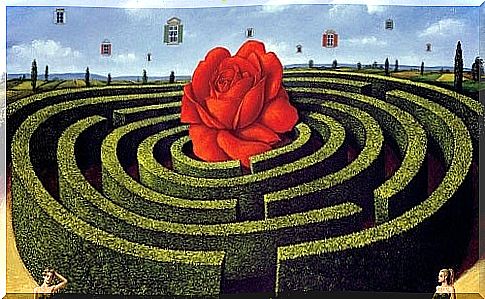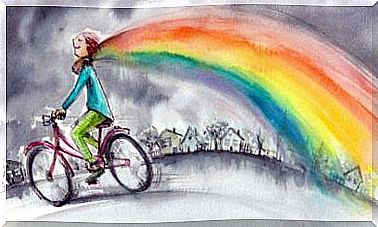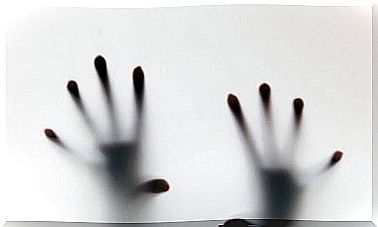Stress And Personal Space: When People Invade Your Privacy

Your personal space is private, confidential, and a secluded area that no one may invade or claim. The term personal space does not only refer to a physical aspect. It also has to do with other stimuli that invade this zone. This can be, for example, noise, feelings that others convey and an overload of information. It also concerns the constant interruptions of our moments of silence and seclusion.
Some people go through life as pachyderms. They act like hulking elephants invading other people’s space and trampling on their rights. They damage the privacy of others. We often see this effect in the workplace. It undoubtedly affects productivity. In addition, it also causes high stress levels and uncomfortable feelings.
We cannot neglect one aspect of this. Personal space does not just refer to the area in which we tolerate the physical presence of others. In that space there are voices, breaths or body heat of others. It makes us feel uncomfortable and can even be threatening. However, personal space is also a bubble. Any psychological or sensory stimulus can make it pop.
For example, certain things such as furniture, decor, lack of lighting or the smell of a specific environment can also be a source of stress. Not being able to take a break, being constantly monitored or controlled are also clear violations of our privacy.

Privacy and stress
Anne and Paul have just become parents and are feeling overwhelmed. They suffer from stress, but it has nothing to do with their baby, but with their environment, family, friends and colleagues. Ever since they left the hospital, their loved ones incessantly invade their personal space. They are enthusiastic people with good intentions who take turns meeting the newborn. They lift the baby and give the parents thousands of parenting tips.
This small example is a sample of how the environment sometimes invades that personal bubble that we must keep only for ourselves. You don’t have to step into an elevator full of people to experience discomfort. The most serious “attacks” often come from the people closest to us. It is also here that the urgent need arises to know how to set boundaries.
Psychologists often see this reality during their consultations. They meet people who have spent half their lives feeling unable to protect their privacy. That immobility or inability to maintain personal boundaries is the cause of a high emotional cost. It bruises and completely weakens the deepest foundations of our psychological structure.
We must keep in mind that defining, limiting and protecting your personal space is a very important key to survival. It is also an exercise in self-knowledge. After all, we realize that we all have our limits. We all have lines that no one should cross because that’s where our confidence resides. Here we keep our balance. This is where our valuable identity resides…

Take care of yourself and protect your personal space
Ralph Adolph and Daniel P. Kennedy, neurologists at the University of Caltech in the United States, made the following discovery. In our brain there is a structure that is responsible for letting you know where the boundaries of our personal space are. This structure is the amygdala. It is a small area of the brain that is linked to fear and the survival instinct.
This discovery reveals something fundamental. The brain measures the personal limits of each individual. It is like a personal alarm that tells us when something or someone is disturbing us. That alarm tells us when something invades our privacy or violates our integrity until it becomes a threat to our well-being. Some people feel overwhelmed by small stimuli and get stressed easily. Others have a much greater tolerance.
Proxemics is the science that studies the effects of our interpersonal relationships in the use of space. It is the study of distancing in social interactions. This knowledge reminds us that witnessing how we feel more and more “overloaded” in every way every day is one of the greatest sources of anxiety. In addition, we get a lot of stimuli, a lot of pressure and so many interactions around us to process. It is so much that we fail to build in any kind of filter. We let everything come our way. We let ourselves be imprisoned and we get surrounded…

Be your own protector
We must be able to maintain our personal boundaries. What we mean by this is that we must learn how to create physical and psychological distance from all external stimuli. After all, these dynamics attack our privacy and act as an influential source of stress. Sometimes our colleagues invade our space. Another possibility is that very noisy, exclusively colorful, small or cramped environments could be the problem.
In other cases, our inability to say no and make it clear what we can and cannot tolerate will cause us to fail to protect our personal space. We must expressly indicate where our personal boundaries lie. This will help us get along much better with others. Only when we do it that way will we succeed in creating a more respectful, productive and above all a healthier social environment.









